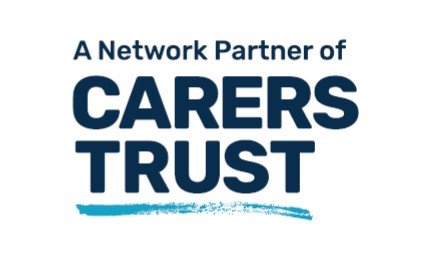Planning Ahead
Situations change for different reasons and at different speeds.
Having a Contingency Plan and an Emergency Plan can help you feel more prepared and able to cope.
Do you know what would happen if you were unable to provide care? This may be something you haven’t really thought about, or find stressful to contemplate.
We recommend documenting how you and the person you care for would want their care to be provided, if the current caring situation had to change, for a short or long period.
An emergency can happen at any time and it is important that you know where to turn and have the peace of mind to know that you have plans in place should you be unable to continue your caring role.
As a Carer you need to know that if an emergency happens, replacement care will be arranged speedily and efficiently.
Creating an Emergency Plan
Do you know what would happen if you were suddenly unable to provide care? This may be something you haven’t really thought about, or find stressful to even contemplate.
We recommend documenting how you and the person you care for would want their care to be provided, if the current caring situation had to change, for a short or long period.
This section suggests things you can do to create an emergency plan.
We advise all Carers to create an emergency plan – for you and all those you look after. Having a plan in place can help ease your worries if you are not able to care for those you look after at any point in the future.
In order to create an emergency plan that fits your needs, you will need to consider:
- details of the name, address and contact details of the person you look after
- who you and the person you look after would like to be contacted in an emergency – this might include friends, family or professionals
- details of any medication the person you look after is taking and where it is stored
- details of any ongoing treatment they need
- noting details of any allergies
- details of their GP and pharmacy
- any ongoing treatment they need
- any care and support services they receive
- any continence products needed and who supplies them
- any mobility challenges and mobility aids such as a wheelchair or hoist
- anything behavioural others need to be aware of.
Having this important information in one place could be of immense support and help when needed at a critical time, when time might be limited. Talk about the plan with the person you care for, if possible, and also with those you would like to be named emergency contacts.
It would also be useful to share it with trusted family members or friends and healthcare professionals. Give people a copy of the plan – or let them know where they can find it and make sure the information is regularly updated.
You can download this Emergency Plan Template to edit and create your own emergency plan.
You can download this Printable Emergency Plan Template to write in your own details and answers.
We will receive a copy of the plan and will attach it to your support plan when you have a Carers Assessment.
We will also discuss, in your Carers Assessment, how the plan should be logged and with whom. See our Carers Assessment page for more information about Carers Assessments.
DOCUMENT YOUR PLAN
Carers Emergency / Contingency Plan
As a Carer it is important to put together an emergency / contingency plan in case something happens and you may not be able to support the person you care for.
We have a template you can use (you can download or print it by clicking the button on the right).
To create your Emergency Plan, you will need to know:
- Name, address and any other contact details of the person you care for.
- Emergency contact details of people who can provide replacement care.
- Any medication the person is taking.
- Any ongoing treatment they need.
- Their support, mobility and communication needs.
Putting your plan together
- Take your time to do this and make sure your emergency contacts are aware you have added them and their details are correct.
- Keep it somewhere safe and somewhere it can be found in an emergency.
- If the person you care for needs specific medication, write on the plan where this is kept and attach a prescription list, if possible.
- Give a copy of your plan to all of your emergency contacts.
- If the person you care for has a social worker give them a copy and ask it to be stored with their file.
- If you have pets think about alternative arrangements for them to be looked after if you are unable to.
- Update your plan if something changes.
If you would like help filling in your Emergency Plan, please get in touch with Enfield Carers Centre on 020 8366 3677 or contact us.
Download our free templates
- print our Carer’s Emergency Plan template. (If you don’t have a printer, you can drop into the office, or contact us and ask us to send a form by post).
- download and fill in the Carers Emergency Plan template electronically by editing the document directly in Microsoft Word and save the file to your computer.
PLEASE DO NOT RETURN THIS FORM TO ENFIELD CARERS CENTRE.
KEEP IT IN A SAFE PLACE AND SHARE IT WITH ANY OF YOUR EMERGENCY CONTACTS.
Your GP
You should tell your GP that you have an Emergency Care Plan at home.
We have a template letter to tell your GP that you are a Carer.
If you want to download and edit the letter to your GP, click here.
To complete the letter before sending, you will need to add:
- The date
- Your name, address, contact details and NHS number (if you know it)
- The GP practice name
- The name and contact details of the person who has agreed to provide cover if you cannot provide care (i.e. the name of the main person mentioned on your emergency/contingency plan). Please note, you will need to get consent from this person for their details to be held by your GP.
We encourage Carers to let their GP know that they are caring for someone who depends on them.
This is vitally important because if the GP knows about your caring responsibilities they can offer additional support to help you to maintain your physical health and emotional wellbeing, such as offering vaccinations and referring on to specialist services if you need them.
They can also record your emergency (or contingency) plan to ensure the continued care of your loved one should you become unwell.
How ECC can help you
- Carers Emergency Card
- Free replacement care including overnight care
- Providing emergency out of hours contact details for social services
- Emergency/Respite Fund
- Access to grants for breaks/essential items
- Helping you to deal with potential safeguarding situations
For more information call: 020 8366 3677 or email: info@enfieldcarers.org


